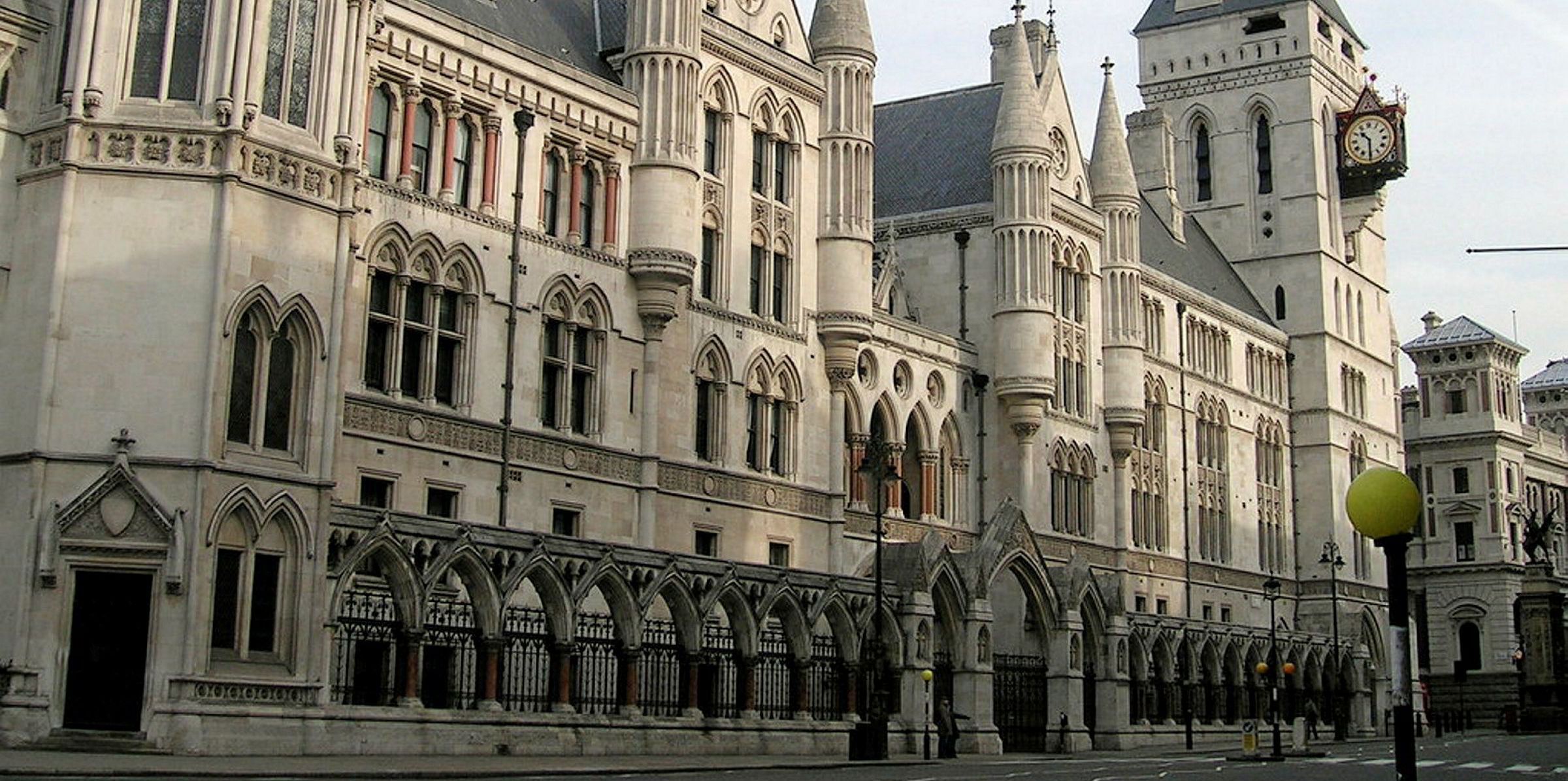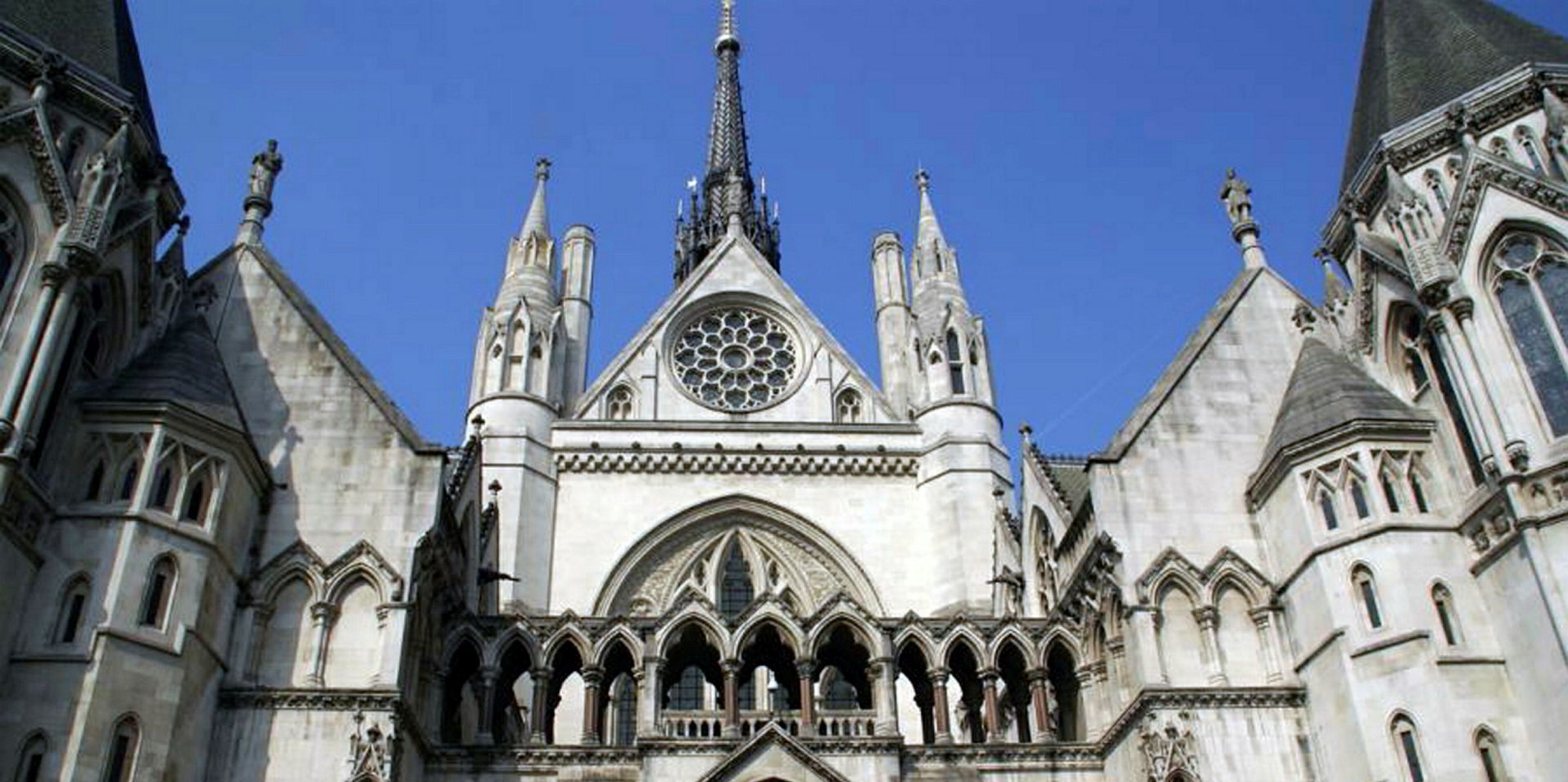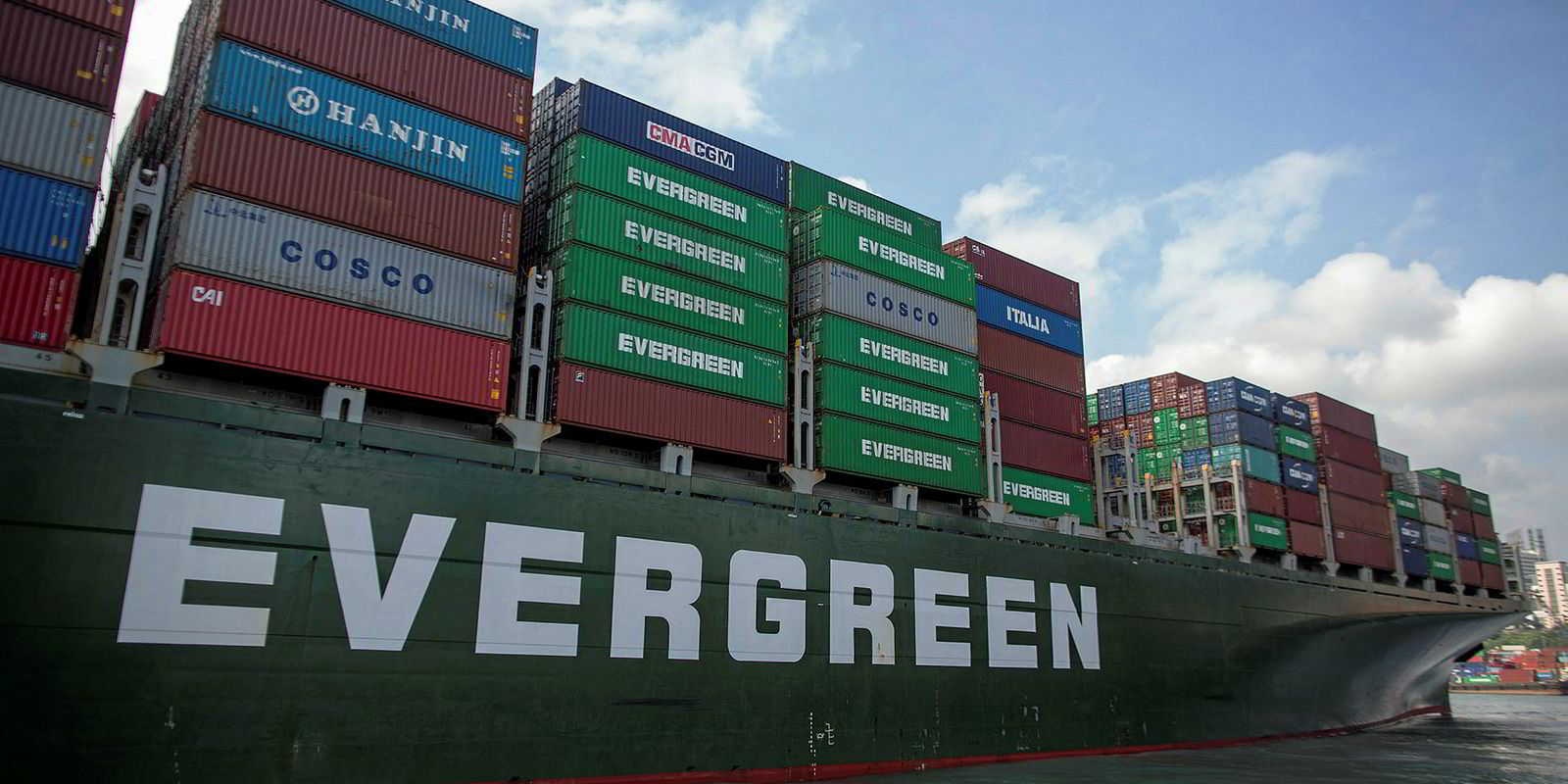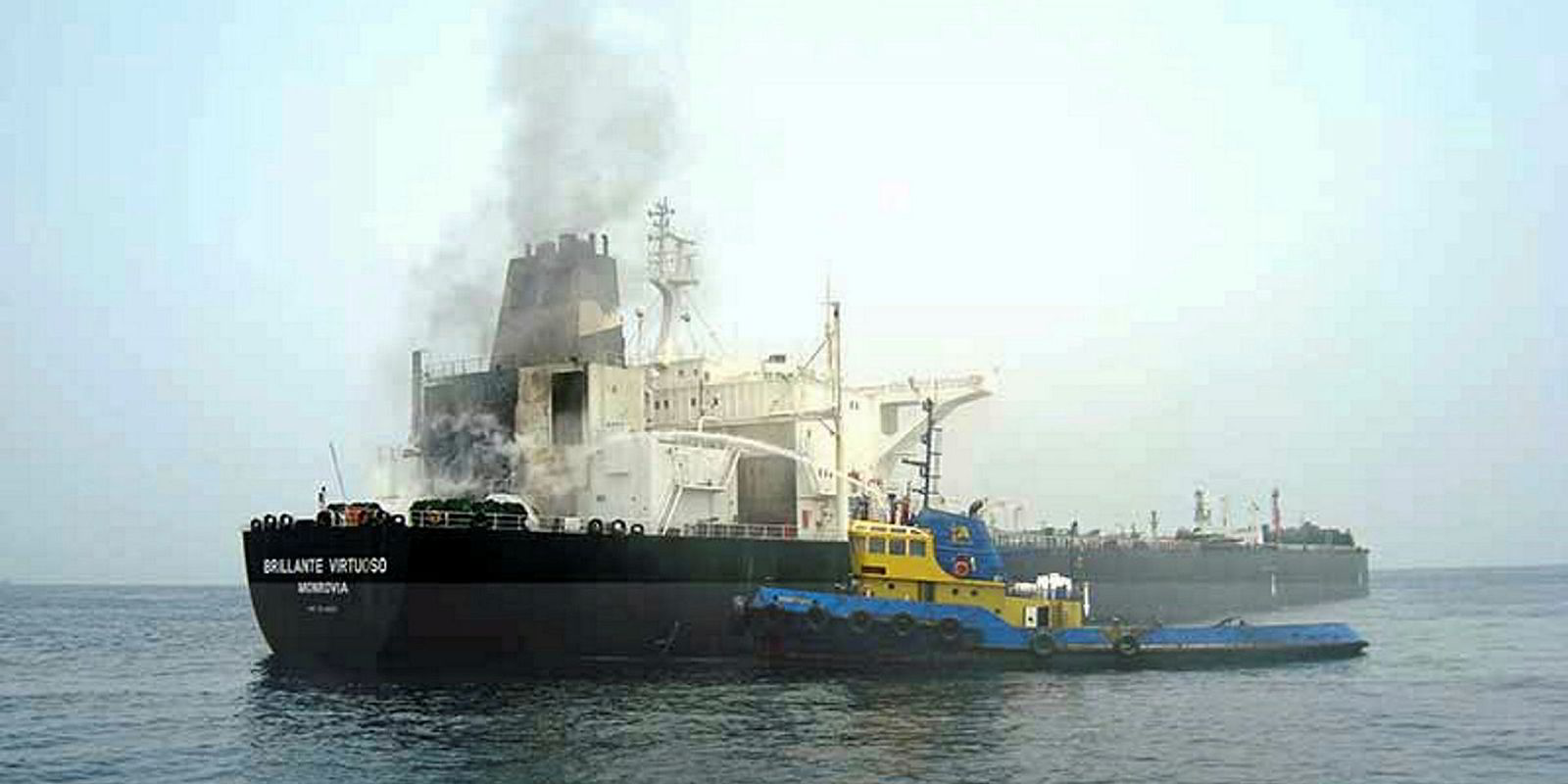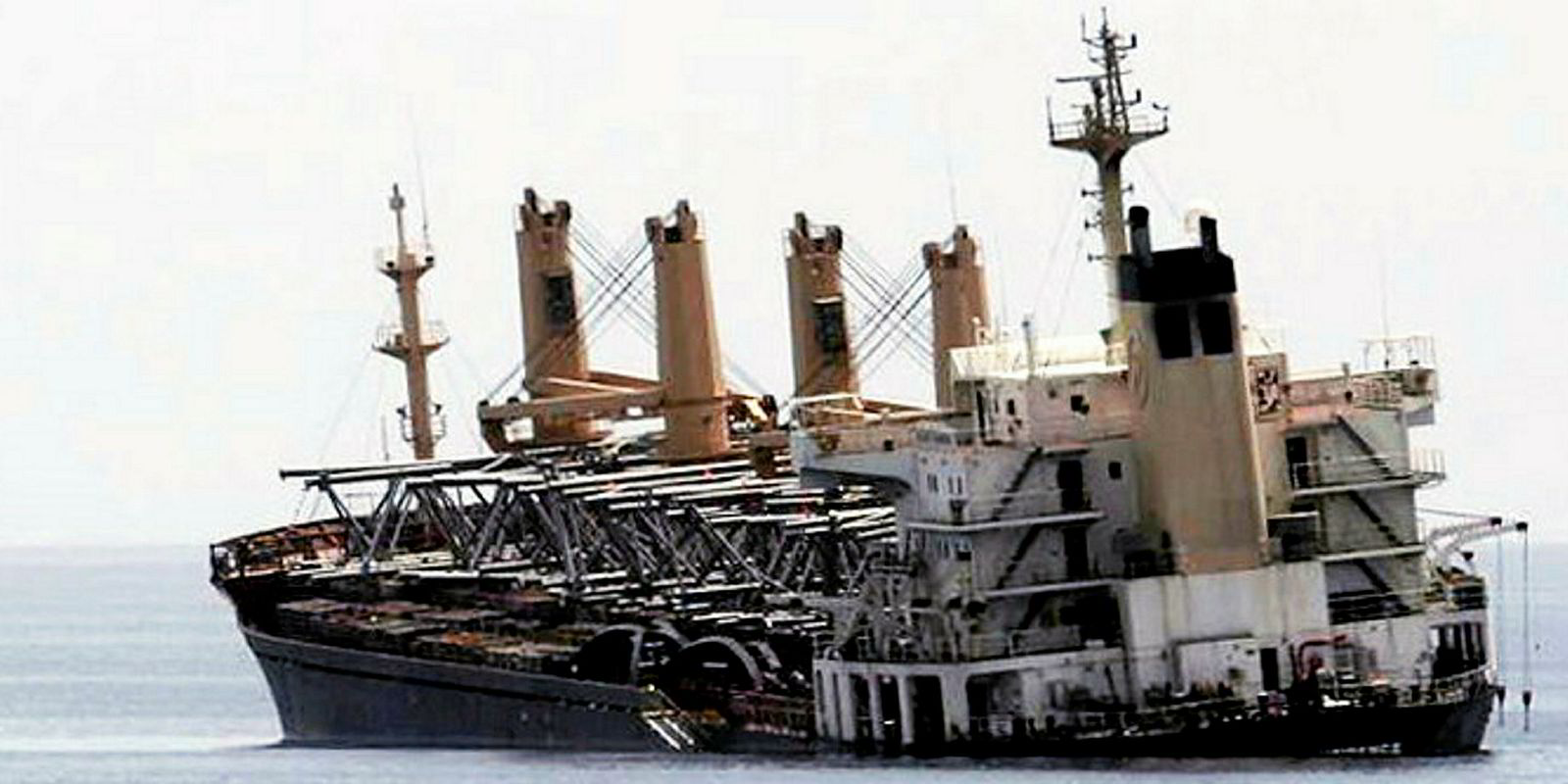The UK Admiralty Court has limited Evergreen's liability to $9.5m for a collision between one of its boxships and a suezmax tanker.
Evergreen's 7,024-teu Ever Smart (built 2006) "drove into and almost through" the 153,000-dwt Alexandra 1 (built 1997), owned by Nautical Challenge, off Jebel Ali in February 2015, judge Andrew Baker said.
Ever Smart suffered $4m in damage. The laden suezmax, whose bow was split to beneath the waterline and whose condensate cargo had to be transhipped before a repair could be carried out, registered damages of more than $32m.
Last year the Court of Appeal rejected a bid by Evergreen to overturn a High Court ruling by judge Nigel Teare that Evergreen was 80% at fault for the collision, and Nautical Challenge 20%.
Baker ruled this week that the recoverable loss suffered by Ever Smart resulting from the collision is $2.53m and Alexandra 1 $9.3m, totalling $11.83m. Evergreen's share at 80% is $9.5m.
An application by Evergreen for permission to appeal the High Court's liability ruling to the supreme court is pending.
An initial report by UK accident investigators found multiple factors caused the collision. The tanker was waiting "too near the channel entrance", and the containership did not keep a proper lookout.
But in last year's decision, Teare found that the suezmax was not liable under "crossing rules", which were not applicable to a situation in which "narrow channel rules" applied.
Nautical short of money
Baker said a major issue to consider in assessing the damages recoverable by Alexandra 1 is the "impecuniosity (as asserted) of its owner", that is, its lack of money.
The tanker was sold in 2017 at judicial auction, having been arrested in Singapore for non-payment of crew wages.
"Whatever I make of Nautical Challenge's claim of impecuniosity as regards the position at the time of and in the two years or so after the collision, until she was finally sold in Singapore, it is certainly impecunious today," the judge said.
Nautical did not pay UK law firm Clyde & Co for the final hearing to assess damages and so Ukrainian Vitali Sokolenko represented the company.
Sokolenko is the husband of the beneficial owner of Nautical Challenge.
Basic collision damage for Alexandra 1 was assessed at $7.56m, plus lost time charter equivalent earnings of $1.65m. Other losses were rejected by Baker.
Nautical said its lack of money led to a delay in repairs, which eventually took 534 days at Dubai's Drydocks World (DDW).
Further claims were made related to subsequent periods under arrest in Malta and Singapore.
Baker said it was perfectly obvious to Nautical Challenge that it would be receiving neither a prompt payout, nor even a prompt acceptance of liability to indemnify from hull underwriters.
'Only realistic option'
Its only realistic option for repairing Alexandra 1 was to conclude the sort of agreement it did eventually conclude, for credit to be extended by the yard secured against the ship, he added.
"There is simply no reason why its need for credit from the yard should have delayed the vessel at the yard beyond the reasonable time required to complete repairs, let alone for 10 months beyond that time," he said.
"There is no basis upon which I could find that if repairs had been completed in orderly time, as they should have been..., any of the extended consequences would have resulted that are sought to be laid at Ever Smart's door."
Delays meant it emerged into a dire tanker market.
"I do not find it particularly surprising that a severely cash-strapped owner, as Nautical Challenge claims to have been, found it impossible, in the event, to trade its way out of its financial difficulties on that collapsed market," Baker said.
"That impecuniosity did not cause Alexandra I to spend an extended time at DDW or therefore to become exposed at what was then the critical time to a collapsed market.
"The consequences of Nautical Challenge's failure to ensure that Alexandra I was repaired within a reasonable time, in my judgment an unreasonable failure, and of the collapsed market into which she then emerged some 10 months after she should have been ready again to trade, were not caused by the collision and are not Ever Smart's responsibility within her liability for negligence in respect of that collision."
